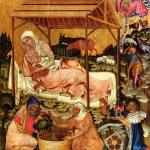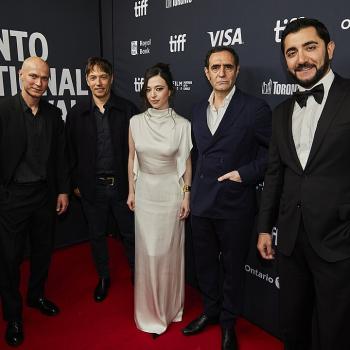Of course, in an extreme form, this is phyletism, which is a heresy. But it can exist in less-hardcore versions: philosophically (as explored above), liturgically, etc. It’s all the easier for Westerners to draw on these (and their own) “traditions” to domesticate Byzantine Christianity, create a fantasy out of it. And this is nothing new. The West has long had difficulty understanding the East, especially the Orthodox East, leading to the creation of malleable stereotypes:
Western intellectuals and scholars have long had a problem in identifying or typifying the eastern lands and cultures of the Orthodox world. The problem has of course almost always been pressing because it was so frequently connected with constructing an identity for the societies of the West. A particular issue was Russia: a significant power and a significant regional space but was it ‘Europe’ or something else – i.e., alien? The history of the successive ‘locations’ of Russia since the Renaissance is, as Perry Anderson has noted (19 76), a revealing and significant subject. Machiavelli regarded Russia as basically the ‘Scythia’ of classical times, ‘a land that is cold and poor, where there are too many men for the soil to support’ so beyond the bounds of Europe, while Jean Bodin saw Russia as within Europe but also unique: the only example of a despotic monarchy, so quite apart from the general European pattern. Later Montesquieu, impressed by Peter the Great’s westernizing efforts, saw Russia as part of Europe (see Anderson 1976: 491 n. 14). However, in the nineteenth century Marx and Engels once more banished Russia to Asia and viewed it as a land of despotism. But the problem of exclusion or inclusion was not limited to Russia; it begins with the issue of Byzantium. (Wilmingtonfavs.com)
And so, this is Orientalism. The construction of a stereotype about the East, even in pursuit of some projected good remains the construction of a stereotype made from equal parts half-glimpsed reality and un-self-conscious projection. The idea that Orthodoxy, in some wholly unmitigated way, completely preserves the Faith of the Fathers in some sense both religious and politically amounts to nothing more than this (as any good Catholic or Orthodox knows: doctrine undergoes something akin to development. The first-century Church did not have iconostases or preach Hesychasm or even understand Papal infallibility as we do today; to say they did is to deny something organic about the nature of institutions. This is not to say there is not Apostolic Christianity, nor is to say that anything can be changed willy-nilly. It’s merely to admit the truth: that while our dogmas remain true, expressions and understandings thereof have changed).
Admitting this about much Convertodoxy is not, in any way, to find fault in Orthodoxy as such. Once again, it is merely to call out something bad I see in my own backyard, something I see far too often practiced within my world of Byzantine Catholicism (it might be worth remembering here that I myself chose to become Ruthenian Catholic). There are undeniably great wonders in the East, but we best understand them as just those: wonders. They are not to be the subjects of caricature or grounds for fantasy. The grass is not always greener, and, even when it is, the grass is not always in the East.













